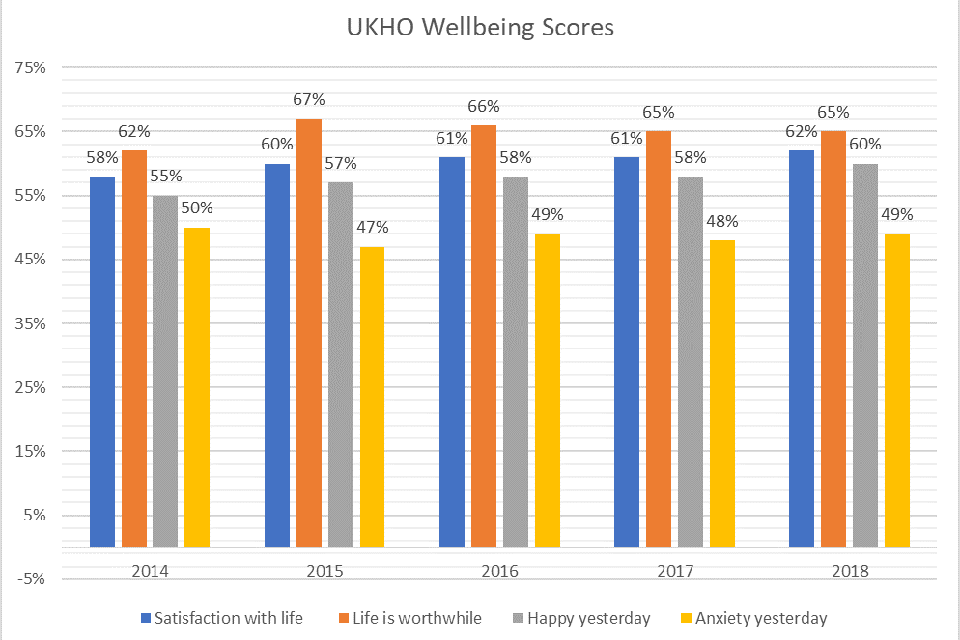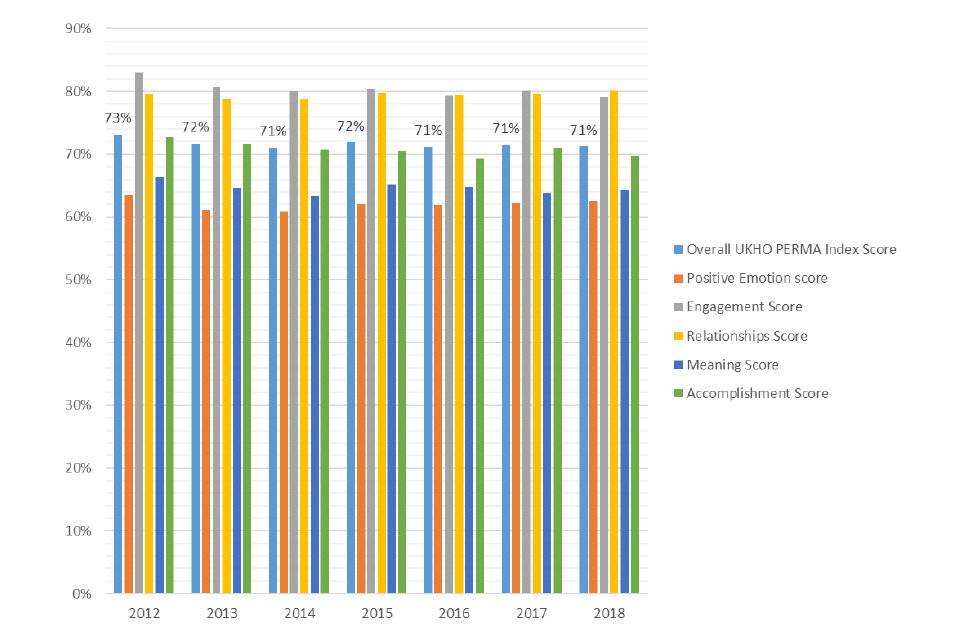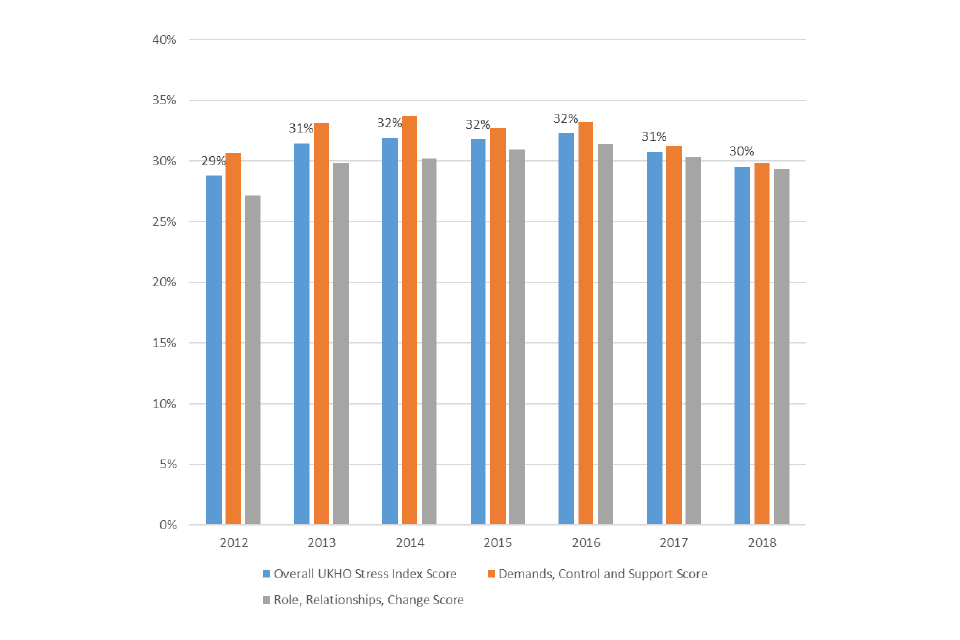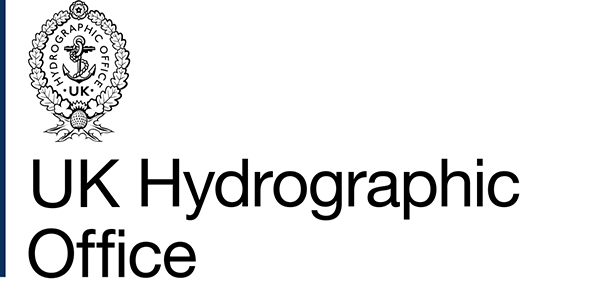Disability, wellbeing and mental health support in the UK Hydrographic Office 2019
Published 9 October 2019
1. Introduction from Tim Lowe, CBE, UKHO Chief Executive and Champion for both Diversity and Mental Health
At UKHO, our people are our key resource; their knowledge and skills and the commitment they show every day are what enables UKHO to be a world-leading marine geospatial organisation. As a people organisation, wellbeing is a key priority for us and as Champion for both Diversity and Mental Health I feel a strong personal commitment and responsibility for ensuring we provide an inclusive and supportive working environment, where all colleagues feel able to thrive. I’m pleased to share the following report, as UKHO’s first, against the Voluntary Reporting Framework on staff disability, health and wellbeing.
2. UKHO Voluntary Reporting on Disability
In July 2019, we ran a campaign to promote the importance of diversity and inclusion and encourage greater response rates for self-reporting of diversity information. We received a positive response and we now have better information and a more complete picture of the diversity of our workforce. Prior to our campaign, 2.91% of all UKHO colleagues declared themselves as living with a disability, this increased to 7.78% by the end of our month-long campaign.
Throughout the year we’ve been promoting the Positive Action Pathway, which aims to increase the representation of female, BAME, disabled and LGBT+ colleagues across the civil service. At least 2 of our colleagues are amongst this year’s formal learning programme.
We’re a Disability Confident employer and we’ve recently introduced the Civil Service applicant tracking system, which is providing greater accessibility to our career opportunities.
We have a Disabilities Group, who are amongst the key stakeholders when we’re introducing a new policy/practice etc, for instance, they provided guidance and support when we introduced the Workplace Adjustment Passport. The group have been instrumental in creating better awareness across the organisation, of disabilities and/or health conditions, their effect and the importance of breaking down barriers, which might be faced as a result. One way this has been achieved has been through regular articles on our intranet and Yammer pages. We will continue to work with the group to increase awareness, particularly among our managers, throughout the department.
We recently introduced portable audio equipment for our hearing-impaired staff and visitors, the introduction of this equipment and training in how to use it, was also organised by our Disabilities Group and Hearing-Impaired support group.
3. UKHO voluntary reporting on mental health and wellbeing
During 2019 we launched our Mental Health and Wellbeing Action Plan, which sets out our vision:
All UKHO colleagues to enjoy a state of positive mental health and wellbeing, feeling supported by managers and peers, in an open culture, free from stigma.
And our aims:
- Break down barriers – encourage an open culture, where there is no stigma to speak about mental health.
- Develop a supporting environment – provide timely access to safe, effective and trained mental healthcare support, as well as networks, policies, procedures, guidance and training.
- Measure and share – produce and share statistics, survey results and other measures to increase our understanding of mental health and wellbeing at UKHO, as well as the national picture.
4. Achieving our aims
4.1 Breaking down barriers
This year we took the opportunity to publish our Mental Health and Wellbeing Action Plan, new intranet pages and launch our Peer Support Group, during Mental Health Awareness Week. We also invited our Employee Assistance Programme (EAP) provider to attend the office during that week, to raise awareness of the information and support available and invited guest speakers to speak about anxiety and ‘Surviving Teenagers’.
We also published an article, written by one of our senior managers, about their own experience of mental ill-health. The article was written with hopes of raising awareness and de-stigmatising the subject of mental health – it was well received across the department.
Our Executive Committee have attended the Wellbeing Confident Leaders workshops, and they have been setting themselves personal objectives in how they can champion our future culture change and ensure we achieve the vision and aims set out in our Mental Health and Wellbeing Action Plan.
We have also been offering training in ‘Support for Mental Health & Wellbeing’, aimed at leaders and managers across the department.
4.2 Developing a supporting environment
In 2019 we launched our Peer Support Group, which is made up of 19 volunteers trained in Mental Health First Aid; our Peer Supporters offer support to our workforce of approximately 850.
The Peer Support Group was primarily created by our Mental Health Awareness Network Group. As with the Disabilities Group, the Mental Health Awareness Group play an important stakeholder role when we’re introducing a new policy/practice etc, such as the Team Charter for our new building, and they were also instrumental in setting up our designated ‘Wellbeing Room’.
We continue to provide EAP, which includes a website and a telephone helpline, available 24 hours per day/365 days per year, with access to telephone and face-to-face counselling, and other support, as needed. Our EAP service also provides us with a ‘Wellbeing Zone’ which can help colleagues to assess and improve their wellbeing, manage stress and set and track goals. The site has useful tips on emotional wellbeing and advice on how diet and exercise can improve mental health.
We also continue to provide the facility to refer colleagues to our Occupational Health (OH) provider, to receive tailored advice for their circumstances. The advice we receive helps us to provide support and, potentially, reasonable workplace adjustments, to enable colleagues to work in a healthy and productive way.
4.3 Measuring and sharing
We have set targets for improvement, against our Civil Service People Survey results, and these are published in our Action Plan. We will update colleagues on our progress after we receive our next set of results. In the meantime, a focus group, made up of members of our Mental Health Awareness Group, Diversity Forum, Disabilities Group, HR Team and Trade Unions are looking at options for a full UKHO Wellbeing Survey, which will provide more comprehensive information and enable us to better focus our efforts for improvements.
5. UKHO Wellbeing
The following table shows UKHO’s wellbeing results, since 2014; this Civil Service People Survey measure includes the questions:
- Overall, how satisfied are you with your life nowadays?
- Overall, to what extent do you feel that the things you do in your life are worthwhile?
- Overall, how happy did you feel yesterday?
- Overall, how anxious did you feel yesterday?
As can be seen below, the scores have fluctuated slightly over the last five years but, overall, since 2014, wellbeing scores for questions 1-3 have improved; with higher levels of life satisfaction (+4%), happiness (+5%) and a greater sense that life activities are worthwhile (+3%). Question 4 measures employees rating their anxiety levels as low, since 2014 there has been a slight drop, overall, by 1%, which would suggest anxiety levels have slightly increased.

Graph showing UKHO wellbeing scores from 2014-2019 - showing higher life satisfaction, happiness and sense that life activities are worthwhile and higher anxiety levels for 2019
We utilise the Civil Service People Survey PERMA Index results, which measure the extent to which our employees are ‘flourishing’. The index combines measures of Positive emotion, Engagement, Relationships, sense of Meaning and sense of Accomplishment (set out in below table).
As can be seen below, in 2018 UKHO had a PERMA Index score of 71%, which has been stable since 2016; however, the score has reduced, overall, since 2012 (by 2%) We’re working hard to improve this score, which is less than the Civil Service median (73%).

Graph showing UKHO Perma Index scores from 2012-2019 - showing it has reduced overall since 2012
We also utilise the Civil Service People Survey Proxy Stress Index results, which measure how stressful the workplace is; the higher the index score, the more stressful the workplace is perceived to be. The questions, which make up the index are aligned to the Health and Safety Executive Stress Management Standards. Factors include higher workloads, lower control over how work is done, and poorer support from team and manager.
As can be seen below, UKHO’s stress index increased in 2014 and remained static for three years but it decreased in 2017 and 2018. We’re working hard to ensure the scores continue in this trajectory and this is noted in our Mental Health Action Plan.

Graph showing UKHO stress index levels, which have decreased in the past two years
6. What are we doing next?
UKHO will continue our efforts to support and improve employee wellbeing and our Executive Committee will work towards individual diversity objectives.
We will develop and increase the level of training to support mental health. We will also introduce a Wellbeing Survey to better inform where improvements are needed and consolidate where we are getting things right.
We will monitor use of our Employee Assistance Programme and encourage greater take-up of the advice and assistance offered. We will work collaboratively with employees and occupational health services to ensure employees are able to work safely and effectively; facilitating workplace adjustments, where required.
We will continue to work with our network groups to increase awareness and reduce negative perceptions; raising mental health and disability issues through our intranet/Yammer platforms and employee events.

